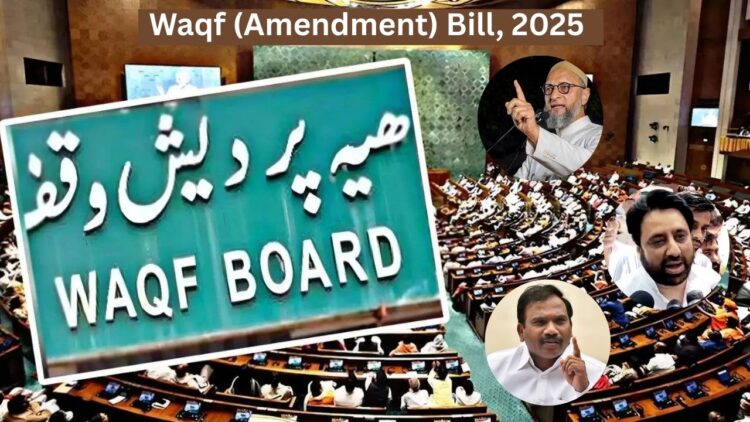Even before its benefits can be fully realized, the Waqf (Amendment) Bill 2025 is facing an onslaught of petitions in the Supreme Court—14 and counting—challenging its constitutional validity. This misguided legal resistance only undermines a bill that finally puts checks on the unchecked powers of the Waqf Board, long accused of arbitrarily taking over private properties, often from poor and unaware landowners.
The Supreme Court, on April 7, agreed to list these petitions, following a mention by Senior Advocate Kapil Sibal on behalf of Jamiat Ulama-i-Hind. While the judiciary must perform its duty, the nature of these petitions makes it clear—they are less about the rights of Muslims and more about protecting entrenched interests that have long benefited from the loopholes of the old Waqf Act.
Kapil Sibal’s plea, claiming that the bill threatens religious autonomy, is nothing but fear mongering. The Waqf (Amendment) Bill 2025 is, in fact, a pro-poor, pro-justice reform meant to safeguard Muslims from exploitative waqf land grabs and bring much-needed transparency.
Individuals Against Waqf (Amendment) Bill 2025
AAP’s Amanatullah Khan, who himself heads the Delhi Waqf Board, challenged the bill alleging that it undermines “minority rights.” Such a statement reeks of self-interest. Under Khan’s leadership, the board has faced multiple allegations of unauthorized property encroachments. The new bill is a direct answer to such misuse—it empowers genuine community welfare while clipping the wings of those misusing religious authority.
AIMIM leader Asaduddin Owaisi went a step further, calling the bill “unconstitutional” and a violation of fundamental rights. But isn’t it unconstitutional when private citizens—many of them poor and unaware—suddenly discover their lands marked as waqf with no recourse or warning? This bill is a shield for those people who’ve lived in fear of sudden waqf notifications on their homes and shops.
The DMK, through a petition filed by A. Raja, and the Tamil Nadu Assembly’s earlier resolution, are playing identity politics under the garb of defending Muslims. They claim the bill impacts 200 million Muslims—but fail to acknowledge that the real beneficiaries of this bill are Muslims who no longer want their community institutions governed by arbitrary and unaccountable forces.
Even RJD and Congress MP Imran Pratapgarhi, who have joined the opposition chorus, are pushing a political narrative at the cost of much-needed reform. Ironically, several Congress leaders who earlier called for waqf transparency are now attacking the very bill that enforces it.
Waqf Bill
The Waqf (Amendment) Bill 2025, introduced by Union Minority Affairs Minister Kiren Rijiju, corrects a historic wrong. It restores the true definition of waqf—property dedicated by Muslims alone—as it existed in the 1913, 1923, 1954, and 1995 versions of the law. The controversial 2013 amendment that opened the floodgates for even non-Muslims to dedicate property as waqf is rightly being rolled back.
In short, this amendment is about clarity, fairness, and justice—not communal targeting. It ends the shadowy expansion of waqf properties at the cost of ordinary citizens, many of whom are Muslims themselves. These petitions are not about safeguarding rights—they’re about preserving unaccountable power.
Here are 14 of the individuals and groups who have filed petitions:
- Mohammad Javed (Congress MP)
- Asaduddin Owaisi (AIMIM leader)
- Association for Protection of Civil Rights (NGO)
- Amanatullah Khan (AAP leader)
- Maulana Arshad Madani (Jamiat Ulama-e-Hind)
- Samastha Kerala Jamiat-ul-Ulama
- Tayyab Khan Salmani (Law student)
- Anjum Qadri (Activist)
- All India Muslim Personal Law Board
- SDPI
- IUML
- DMK (through A. Raja)
- Congress MP Imran Pratapgarhi
- RJD MPs Manoj Jha and Faiyaz Ahmed
Each of these petitions should be seen for what they are—efforts to derail a much-needed reform that is in the interest of the nation and the welfare of countless poor Muslims whose voices have long been ignored.

















Comments